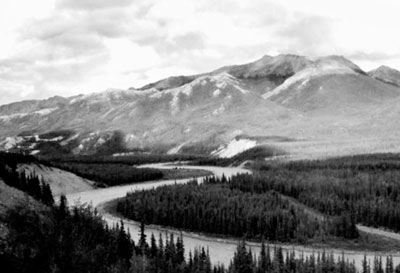All Nonfiction
- Bullying
- Books
- Academic
- Author Interviews
- Celebrity interviews
- College Articles
- College Essays
- Educator of the Year
- Heroes
- Interviews
- Memoir
- Personal Experience
- Sports
- Travel & Culture
All Opinions
- Bullying
- Current Events / Politics
- Discrimination
- Drugs / Alcohol / Smoking
- Entertainment / Celebrities
- Environment
- Love / Relationships
- Movies / Music / TV
- Pop Culture / Trends
- School / College
- Social Issues / Civics
- Spirituality / Religion
- Sports / Hobbies
All Hot Topics
- Bullying
- Community Service
- Environment
- Health
- Letters to the Editor
- Pride & Prejudice
- What Matters
- Back
Summer Guide
- Program Links
- Program Reviews
- Back
College Guide
- College Links
- College Reviews
- College Essays
- College Articles
- Back
Violence and Greed in The Adventures of Huckleberry Finn
Violence and greed motivate many of the characters’ actions in Mark Twain’s, The Adventures of Huckleberry Finn. Instances of violence include the feud between the Shepherdsons and the Grangerfords; ¬¬¬¬¬¬¬¬the robbers’ plan to kill their accomplice, Jim Turner; and what Pap’s greed turns into when he doesn’t get his way. Greed can be found in Pap’s wishes to gain control over Huck’s money as well as by the Duke and the King’s lifestyles.
In chapter twelve of The Adventures of Huckleberry Finn, Huck encounters a shipwreck and overhears two robbers' planning to kill Jim Turner, their accomplice, for telling on them. When Huck hears Jim Turner say "Oh, please don’t, boys; I swear I won’t ever tell!" (Twain Chapter 12), it motivates him to take the robbers' boat and to send officials to capture the men. Later on, Huck comes across the Grangerford family who’s been in a feud with the Shepherdons that, “started thirty year ago, or som’ers along there,” (Twain Chapter 18) and it all started because one man didn’t like losing a lawsuit, “There was trouble ‘bout something and then a lawsuit to settle it; and the suit went agin one of the men, and so he up and shot the man that won the suit…” (Twain Chapter 18). When it’s found out that Miss Sophia Grangerford has, “run off to get married to dat young Harney Shepherdson,” (Twain Chapter 18) both families go to war with each other, believing it’s the other family’s fault.
One motivation made by greed that can also be considered a motivation of violence, and the sole reason Pap came back, was Pap's need for Huck's money, held by Judge Thatcher. Skillfully, Huck sells his 6,150 dollar fortune to the Judge for one dollar, once he realizes his Pap will try to get his money, to ensure his father will never possess it. Sorrowfully, this does not discourage Pap's advances to retrieve the money, as he confronts Judge Thatcher and when told the money is out of his reach, becomes furious. Another thing that adds to his fury is that Huck doesn’t listen to him and doesn’t quit school. “Well, pretty soon the old man was up and around again, and then he went for Judge Thatcher in the courts to make him give up that money, and he went for me, too, for not stopping school,” (Twain Chapter 6). In his anger, his acts of greed become acts of violence when he kidnaps Huck.
Perhaps the two greatest examples of greed are the duke and the king. The duke and king come up with so many false stories and pretenses, in order mooch as much money as possible from all the innocent people they meet, as they go from town to town with Huck and Jim. “The king is the older of the two con artists that Jim and Huck meet in Chapter 19, and he’s definitely the worse of the two,” ("Schmoop"). Twain points out this fact in the first con the two men pull; the duke ‘makes’ a harmless nine bucks while the king steals over $80 by taking advantage of people’s religious faith. An instance of violence that spouted from this example of greed is one town’s wish for revenge on the duke and the king. After finding out about the play, the town wants nothing more than to get their revenge, and had the duke and the king not had a ride out with Huck and Jim, the town would’ve gotten their revenge.
Mark Twain's The Adventures of Huckleberry Finn characters are motivated throughout the novel by greed and violence. The Grangerford and Shepardson feud and the robbers' plans for Jim Turner are examples of violence, while Pap's need for Huck's fortune is an example of greed progressing into violence. There are other examples of greed and violence throughout Twain's novel, such as the King and the Duke's lifestyles, and one town's revenge on them.
?
Works Cited
. "The Duke and The King." Schmoop. Schmoop University, 2011. Web. 20 Jul 2012. <http://www.shmoop.com/huckleberry-finn/the-duke-the-king.html>.
Twain, Mark. The Adventures of Huckleberry Finn. Charles L. Webster & Co, 1884. Chapter 6, 12, 18. Print.

Similar Articles
JOIN THE DISCUSSION
This article has 1 comment.
